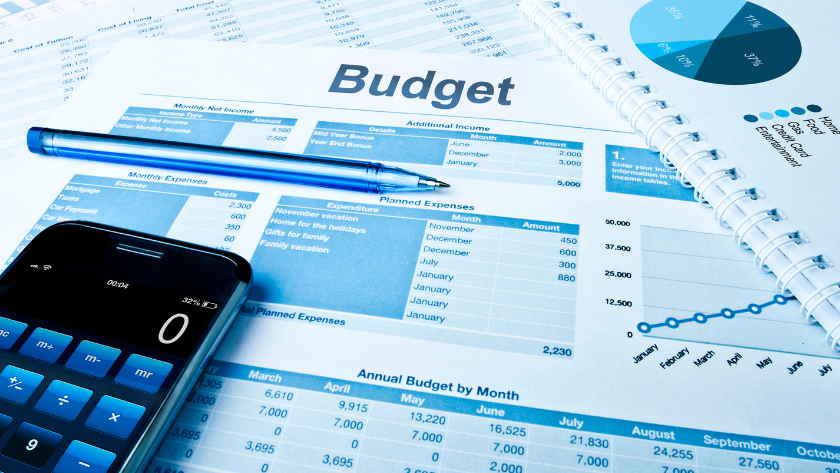Whether it’s planning a wedding, buying a new car, saving for a down payment on a home, or saving for a dream vacation, large expenses are a part of life. However, these financial commitments can often seem intimidating and unmanageable.
With careful planning and strategic financial habits, even the most significant expenses can be manageable. The goal is to approach these larger financial goals with a clear plan and a solid understanding of your income, expenses, and saving capabilities. By remaining consistent and disciplined in your budgeting, you can tackle any financial obstacle.
- Saving Systematically (Sinking Funds)
- Curtailing Unnecessary Expenses
- Exploring Income Opportunities
- Making a Comprehensive Financial Plan
- Automating Savings
- Utilizing Financial Tools
- Adjusting Your Lifestyle
- Seeking Professional Financial Advice
- Building an Emergency Fund
- Investing Wisely
Saving Systematically (Sinking Funds)
This strategy involves consistently setting aside a certain amount of money each month towards your major expenses. Planning in advance is key, trying to come up with a couple thousand dollars for next months vacation is a lot harder than setting aside $200 each month for next years vacation. The amount could be a percentage of your income or a fixed amount based on affordability. The key is consistency. By steadily saving, you will gradually accumulate a significant amount over time to cover your large expense. The focus is on developing a habit of saving.
Check out: How Sinking Funds Make Budgeting Easier
Curtailing Unnecessary Expenses
If you’re struggling to save money each month, you have two options: earn more or spend less. Look for discretionary expenses that are non-essential and don’t significantly impact your lifestyle. Examples might include frequent dining out, unused monthly subscriptions, or impulsive purchases. By identifying and eliminating these expenses, you can repurpose the saved funds towards your financial goals. This not only boosts your savings but also promotes financial discipline and responsible spending.
Check out: Understanding and Reducing Unnecessary Expenses in Your Budget
Exploring Income Opportunities
If you’re struggling to save money each month, another option is to increase your income. You could look for opportunities like a higher-paying job, overtime, freelance work, or starting a side business. This additional income can be used towards your financial goals, lessening the stress without affecting your lifestyle or savings. While this approach takes effort, it can greatly enhance your financial resources and expedite handling larger expenses.
Making a Comprehensive Financial Plan
Budgeting for large expenses should be part of a comprehensive financial plan that considers your income, regular expenses, savings goals, and future financial commitments. This will give you a clear understanding of your financial health and allow you to make informed decisions about your large expenses.
Automating Savings
Another effective strategy is to automate your savings. This involves setting up automatic transfers from your checking account to your savings account. This reduces the temptation to spend the money and ensures consistent saving. It also lessens the mental load of having to remember to transfer funds each month.
Utilizing Financial Tools
Utilizing financial tools and apps can greatly aid in budgeting for large expenses. These tools can track your income and expenses, help you set saving goals, and even give you a visual representation of your financial progress. This can keep you motivated and make the budgeting process simpler and more efficient.
Check out: Ploutos Budget
Adjusting Your Lifestyle
Making temporary adjustments to your lifestyle can also help to manage large expenses. This could involve downsizing your home, choosing a more economical vehicle, or even cutting back on luxury items. While these changes might be challenging, they are often temporary and can significantly help in managing your budget.
Seeking Professional Financial Advice
If managing large expenses is challenging for you, consider seeking professional financial advice. A financial adviser can offer personalized guidance based on your financial situation and devise a strategic plan to manage your expenses. It’s important to research and find a reliable financial advisor who will help and educate you on handling money effectively, rather than just selling you products or promoting debt.
Building an Emergency Fund
An emergency fund is a safety net that can help you manage unexpected expenses without derailing your budget for large expenses. By setting aside a small amount each month, you can build up an emergency fund over time. This will give you peace of mind and financial security in the face of unforeseen costs.
Check out: Tips for Creating a Solid Emergency Fund
Investing Wisely
Investing can be a powerful tool for managing large expenses, especially for long-term financial goals. It’s not typically suitable for goals within the next few years. The longer your investment horizon, the better. Investing in the stock market, bonds, or real estate could yield returns that help cover your expenses. However, investing involves risks. It should be undertaken with careful consideration and, preferably, professional advice.
Facing significant expenses can seem daunting, but with the right strategies, you can confidently navigate these financial challenges. Remember, consistently and proactively planning, as well as maintaining discipline, are key to managing large expenses. With these strategies, you can confront large expenses directly while maintaining financial stability and peace of mind.





